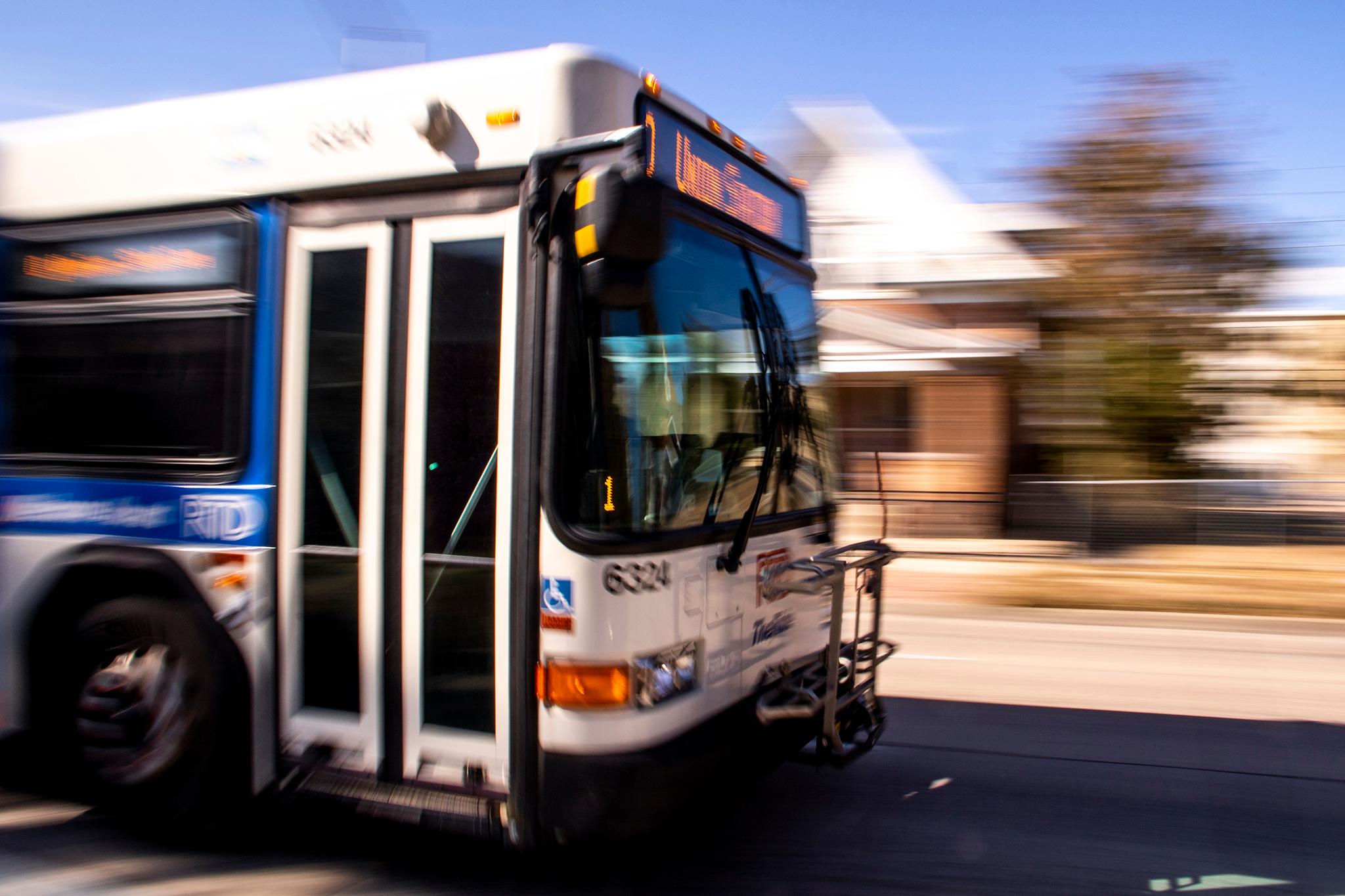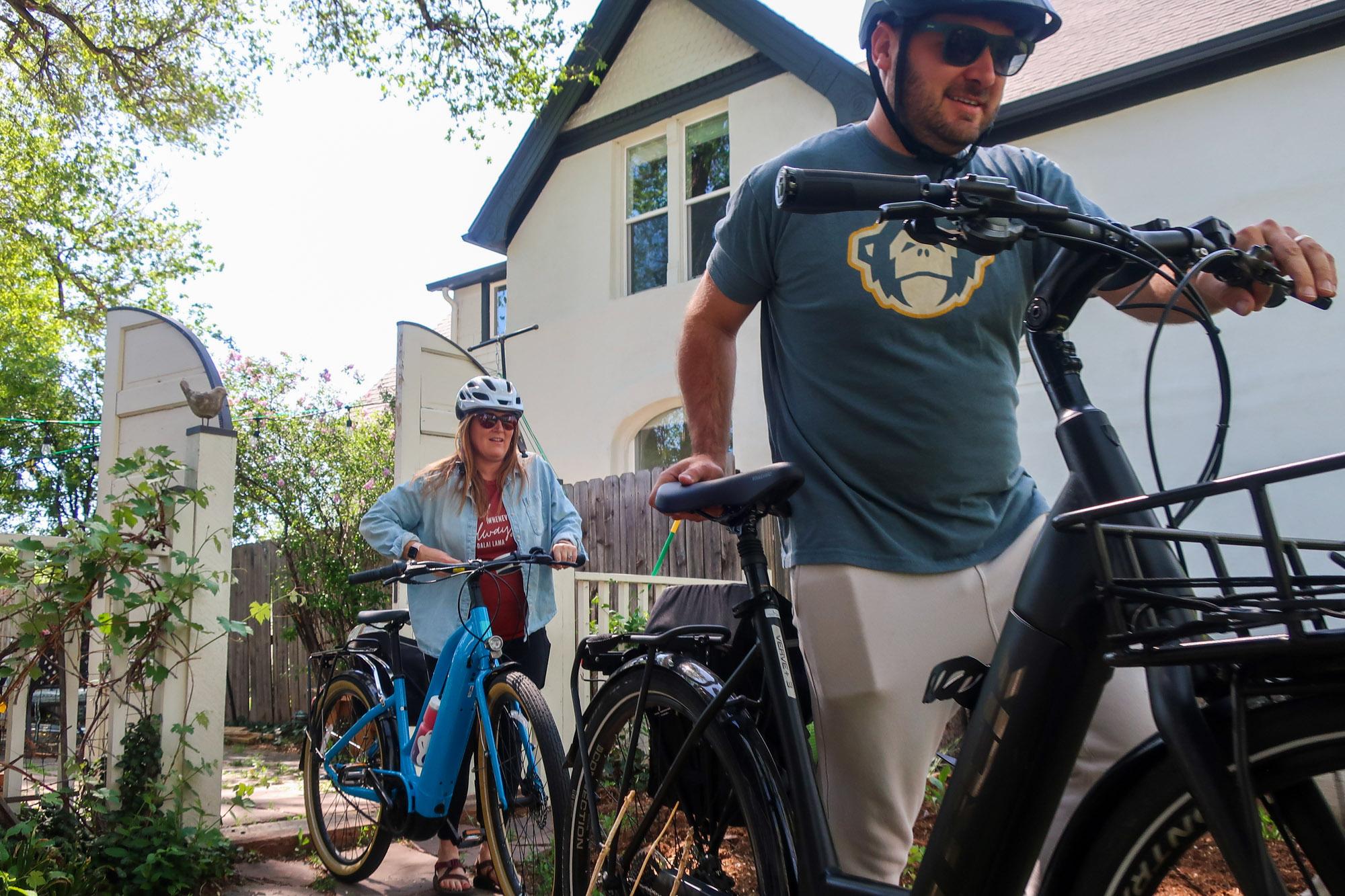The road to a world with no cars -- or at least fewer cars -- is bumpy, especially when newer modes of small-scale transportation try to fit into older, larger transit systems. Nowhere is this clearer than the debate over how electronic bicycles fail to fit within bus and train travel.
Thousands of Denverites have been hitting up local e-bike shops with city-funded rebates in hand and big dreams of making their jaunts around town greener. Some of those people, wanting to expand their ability to navigate the metro area without a car, have been hoping they could take their e-bikes on Regional Transportation District buses, trains and light rail.
Bad news for them: RTD bans their city-funded rides. The official policy goes like this: "Motorized bikes and bicycles larger than 80 inches x 40 inches are prohibited."
The ban irritates transit activists.
They want the region to do whatever it can to reduce cars on the roads and increase micromobility -- a jargony way of saying riding bikes, e-bikes, scooters, skateboards and the like to go from one place to another.
Traditional bikes -- which some wiseacres call "acoustic bikes" -- are allowed on bus and train racks and can sometimes be carried aboard, pending the driver's judgment.
"It's unfortunate that RTD is prohibiting e-bikes on their services, and especially with how much money and excitement there is behind making these important transportation tools accessible to more Denverites," Denver Streets Partnership Executive Director Jill Locantore said in an email. "We'd like to see the policy changed so that e-bikes can be used as not only an end-to-end transportation mode, but an amazing first- and last-mile tool as well."
First- and last- mile refers to the slog between many RTD bus and light rail stops and homes and workplaces in the city. That distance to access public transit prevents many people from riding.
So if the ban makes people less likely to use the bus or train, what's the point of the rule for a transit system trying to up ridership?
Safety and the durability of bike racks are two primary reasons -- in theory. But it turns out the policy has nothing to do with e-bikes as we know them.
"Per the current Bike-n-Ride policy-which was developed prior to modernized battery-powered e-bikes becoming commonplace-motorized bikes are prohibited on bus and rail," said RTD spokesperson Austin Nettleton in an email. "This prohibition was intended to prevent customers from bringing internal combustion vehicles, such as, mopeds and gasoline-powered scooters on vehicles and to prevent heavy vehicles from being loaded onto, and possibly damaging bike racks."
Though slender, contemporary e-bikes, with removable batteries, aren't really taken into account in the rules, this isn't a look-the-other-way sort of policy. RTD doubled down in a recent memo and told drivers to keep e-bikes off of transit lines.

Do other cities' transit systems allow e-bikes on buses and trains?
Some do. Some don't.
On Los Angeles's Metro transit, e-bikes are allowed, if they're the size of a regular bike.
"Fuel powered, 3-wheeled, tandem, recumbent and over 6-foot long bicycles, as well as all mopeds and trailers, are not allowed," according to Metro rules. If you violate them, you can get a ticket.
Sound Transit, in Seattle, allows any standard-sized e-bike.
Roaring Fork Transportation Authority, the bus service between Aspen, Glenwood Springs and Rifle, does not permit e-bikes on racks or inside buses. "The bikes can be too heavy and large for the racks," according to the rules.
RTD is feeling some pressure to reexamine the policy, as the city invests millions in e-bikes.
In 2020, voters passed a .25% sales tax to fund the city's $40-million a year Climate Protection Fund. Of that, $3 million a year is going to rebates for e-bikes, battery storage systems, electric service panels, and wiring installation for electric vehicle chargers.
The e-bike rebate program offers $500 credits for regular e-bikes, up to $1,200 for low-income residents, and an additional $500 for electric cargo bikes. In the first round, there were 3,250 applications. Many local stores are reporting a backlog of inventory.
Denver's rebates, paid for by a climate tax voters passed in 2020, range from $400 for all residents to $1,200 for income-qualified applicants. E-cargo bikes get another $500 credit. The city has received 3,250 applications, 40% of which were for income-qualified vouchers.
So is there hope RTD might modernize its rules?
Maybe.
"With public interest in battery-powered e-bikes and foldable e-scooters rapidly increasing, RTD is revisiting its current policy regarding these devices," Nettleton said. "Factors such as safety, customer flow, U.S. Department of Transportation regulations regarding transporting of hazardous materials (i.e., contents of the batteries in e-bikes/e-scooters) on buses and trains, size and weight, among others, must be considered."












